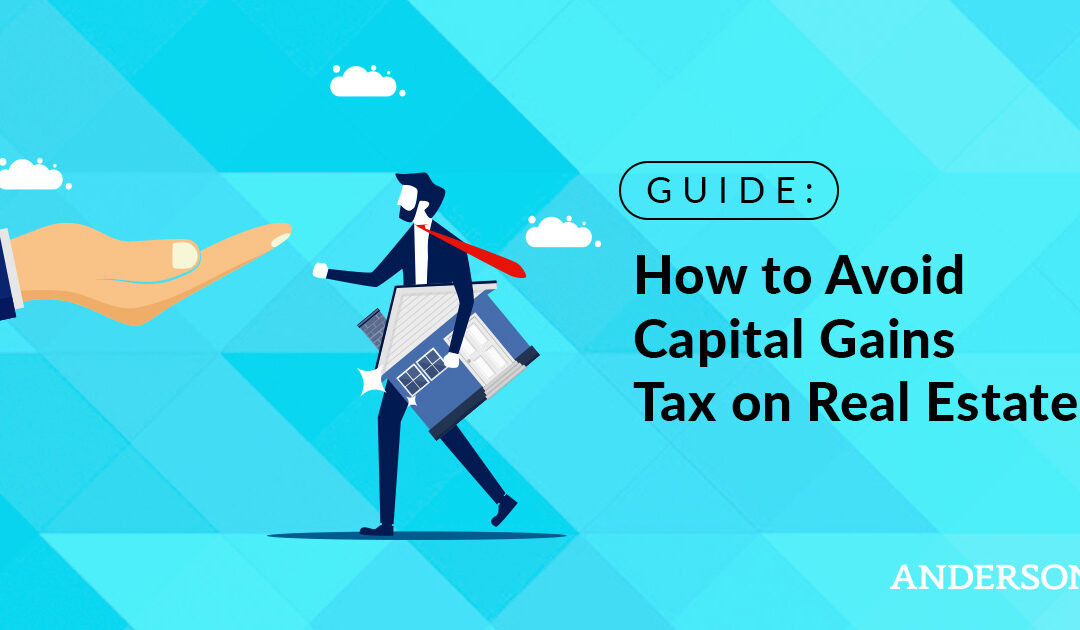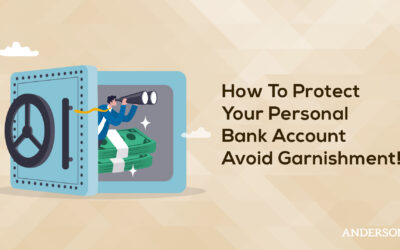Federal capital gains taxes as high as 37% can significantly cut into your real estate profits. Learn how to avoid capital gains taxes on real estate, including what exemptions you might already be eligible to receive. Find out how you can also qualify to reinvest your real estate profits to defer your capital gains taxes in this guide: How to avoid capital gains tax on real estate.
Key Takeaways on Avoiding Capital Gains Tax
- Understanding Capital Gains Tax: Capital gains taxes are fees that real estate investors must pay after selling a property. They are calculated based on the profit made from the sale, i.e., the difference between the purchase price and the selling price of the real estate.
- Who Pays Capital Gains Tax: The IRS requires payment of capital gains tax upon selling an asset under certain conditions. These include scenarios where the property is a second home (investment, vacation, or rental), when the property has been owned for less than two years within a five-year period, or when the home was lived in for less than two years in the five years before selling. The specific rate depends on various factors such as income tax bracket, marital status, duration of property ownership, and whether it was a primary or secondary residence.
- Avoiding Capital Gains Tax: Strategies to avoid or reduce capital gains tax on real estate include waiting at least a year before selling a property (qualifying for long-term capital gains), taking advantage of primary residence exclusions, rolling profits into a new investment via a 1031 exchange, itemizing expenses, choosing properties in opportunity zones, and timing the sale of the property for a period when income is lowest.
- Deferring Capital Gains Tax: Buying another home after selling an investment property within 180 days can defer capital gains taxes. Although reinvesting the proceeds from a sale still obligates the payment of capital gains, it can defer them. Taxes cannot be completely avoided by reinvesting in real estate, but they can be deferred by investing in similar real estate property1.
- The Two-Out-of-Five-Year Rule: According to this rule, one doesn’t need to live in a home for five consecutive years to qualify for tax exemptions. Living in a home cumulatively for two out of the five years before selling can qualify one for capital gains tax exclusions of $250,000 per person or $500,000 per couple.
What Are Capital Gains Taxes, and How Do They Work?
Before we get into tips to avoid capital gains taxes on real estate, let’s review what they are and how they work. Capital gains taxes are fees real estate investors must pay after selling a property. Real estate investors pay a tax on the profits they receive selling property or land, similar to paying taxes on earned income.
The Internal Revenue Service calculates capital gains based on profit. This typically involves being taxed on the difference between how much you paid for the real estate versus how much you receive after selling it.
Who Pays Capital Gains Taxes?
The IRS requires you to pay capital gains taxes anytime you sell an asset. The federal government requires sellers to pay capital gains if:
- The home was a second property (investment, vacation, or rental)
- You owned the home for less than two years within a five-year period
- You lived in the home for less than two years in the five years before selling
- You have already claimed your exemption on another property within the last two years
- You buy the property through a 1031 exchange
The specific rate you pay depends on your income tax bracket, marital status, how long you’ve owned the property, and whether it was your primary or secondary residence. You can get an exemption if you sell your primary residence but can only claim it once every two years.
Tax & Asset Protection Workshop
Learn about Real Estate & Asset Protection at our next
FREE LIVE STREAM
How To Avoid Capital Gains Tax on Real Estate
Capital gains taxes can quickly cut into your real estate profits. If you plan to buy and sell several properties for profit, you’ll want to consider how to avoid capital gains tax on real estate.
A few techniques can help you avoid expensive capital gains, including:
- Wait before selling: Buying and selling a property within a year is considered a short-term capital gain. Waiting at least a year before selling, if you can manage the monthly costs, can help reduce your tax liabilities by qualifying you for long-term capital gains.
- Take advantage of primary residence exclusions: All states offer exemptions on tax liability when selling your primary residence. To qualify, you must own and reside on the property for a specified time. If you can improve its value while living on-site, you might qualify for a $250,000 (single) or $500,000 (married) exemption.
- Roll your profits into a new investment: A 1031 exchange allows you to roll your real estate profits into a similar investment type. However, the requirements for a 1031 exchange are often more in-depth than your other options. A 1031 tax-deferred exchange might also be an option if you’re selling real estate at a loss.
- Itemize your expenses: Itemizing your expenses, including construction, equipment, repairs, and sale costs, can help you decrease your tax liability. You’re only required to pay capital gains on your profits.
- Strategically plan where to buy: Strategically choosing properties in opportunity zones can help you manage capital gains costs. These zones are often distressed areas that could use improvements, so you can do good for the local community while also reducing your out-of-pocket costs.
- Choose your sale date carefully: Timing the sale of your property for a period when your income is at its lowest can also help you avoid capital gains taxes. The IRS charges as little as 0% on capital gains if your income is lower than $80,000.
Considering these options before choosing a property and creating a timeline can help you manage your tax liabilities. Combining multiple strategies, such as buying in an opportunity zone and timing your sale wisely, can help you keep more profits in your pockets.
Frequently Asked Questions about Capital Gains Tax
How Long Do I Have to Buy Another House to Avoid Capital Gains?
You might be able to defer capital gains by buying another home. As long as you sell your first investment property and apply your profits to the purchase of a new investment property within 180 days, you can defer taxes. You might have to place your funds in an escrow account to qualify.
Do I Pay Capital Gains if I Reinvest the Proceeds From the Sale?
While you’ll still be obligated to pay capital gains after reinvesting proceeds from a sale, you can defer them. Reinvesting in a similar real estate investment property defers your earnings as well as your tax liabilities.
Can You Avoid Capital Gains Tax by Reinvesting in Real Estate?
You can’t avoid capital taxes by reinvesting in real estate. You can, however, defer your capital gains taxes by investing in similar real estate property.
What Is the Two-Out-of-Five-Year Rule?
The two-out-of-five-year rule means you don’t have to live in a home for five consecutive years to qualify for tax exemptions. As long as you live in a home cumulatively for two out of the five years before selling, you might qualify for capital gains tax exclusions of $250,000 per person or $500,000 per married couple.
What Is the Difference Between Short and Long-Term Capital Gains?
Capital gains taxes range between 0% and 37%. The average capital gains rate is lower for long-term gains than short-term. A short-term capital gain includes buying, selling, and earning profits on an asset you have owned for a year or less. A long-term capital gain is a profit from an investment you have owned for more than a year. Therefore, waiting to sell your real estate asset could save you money.
Want to discuss the tips in this guide: How to avoid capital gains tax on real estate in detail? Do you have more questions about your capital gains tax liabilities before buying or selling a real estate asset? Contact us at Anderson Legal, Business, and Tax Advisors for your free strategy session today.
Free Strategy Session with an Anderson Advisor
Receive a detailed risk assessment to assist in lowering problem areas that could wipe out all of your assets with one wrong move. Speak with an Anderson Professional Advisor to get your FREE Strategy Session. Limited-Time Offer: FREE (a $750 value.)
















